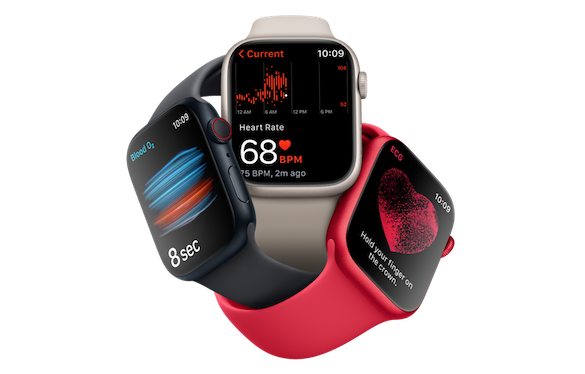Leverage numerous infectious disease and vaccine experts using best-in-class data sources and the right sites.
A new vaccine in development could soon curb a highly infectious respiratory disease that impacts more than 30 million children under five each year. Respiratory syncytial virus (RSV) is responsible for the deaths of more than 160,000 children annually. While most of these deaths occur in low and middle-income countries, RSV is responsible for 57,000 annual hospitalizations of children under five in the United States.
Despite its global impact, there is currently no approved vaccine for the disease. However, approximately 60 RSV vaccine candidates are currently at various stages of development, including a vaccine from Novavax, which recently reached a major milestone. The Phase 3 trial of its RSV F maternal immunization – which is given to pregnant mothers to transfer immunity to their babies – exceeded 4,600 participants, 3,000 of whom received the vaccine. The objective of the trial is to determine the efficacy of maternal RSV immunization against medically significant RSV respiratory infections in infants through a minimum of the first 90 days of life and potentially through the first six months. It has been granted Fast Track designation by the US Food and Drug Administration, making it eligible for priority review assuming the interim data analysis, expected in the first quarter of 2019, shows success.
The trouble with RSV
RSV vaccines have been a controversial subject since the 1960s, when an RSV vaccine using formalin-inactivated RSV led to an enhanced form of RSV disease and two deaths in vaccinated infants and toddlers. This made many developers hesitant to pursue new RSV vaccine projects. As a result, in the ensuing four decades, only live-attenuated vaccines were tested for active infant immunization, limiting opportunities for innovation.
Pregnant women and infants, particularly neonates, at-risk and premature infants are also considered ‘vulnerable populations’ in clinical research. This means they are less likely to be included in studies, and when they are they require highly specific safety and adverse event monitoring to accommodate the unique risks these populations face. These risks (both real and perceived) can make it challenging to design clinical trials to demonstrate the safety and efficacy of maternal or infant vaccines in any clinical setting. In fact, the majority of safety and effectiveness data for maternal vaccines currently come from retrospective population-based cohort studies and database reviews rather than randomized clinical trials.
Infant vs maternal vaccines
Maternal immunization is an appealing tool in the fight against RSV, as infants are at high risk of contracting the disease in the first months of life. This model has already been shown to be effective with the maternal whooping cough vaccine booster. However, several infant RSV vaccines in development also hold promise. Janssen is currently conducting a Phase I/II trial to test a recombinant vector RSV vaccine which would be given to RSV-naïve infants at two months of age; and Bavarian Nordic is conducting a Phase II study of its infant RSV vaccine, which contains five RSV antigens encoded on a single vector to produce an immune response against both RSV subtypes.
These are promising developments, however, any infant or maternal RSV vaccine may face obstacles in achieving market uptake for a number of reasons.
For instance, at a minimum these vaccine candidates want to protect infants in the first 90 days of life when they are most vulnerable. However, the maternal immunization effect could extend to several months in the infant; and it is possible the effect of a vaccine could extend immunization benefits to subsequent babies. This would all be viewed as a success, however it also raises questions about the timing and use of future maternal and infant vaccines. Developers of maternal vaccines also need to determine if there is negative interference between the antibodies from a maternal vaccine with the infant’s own antibody production, and what risks that may create, if any.
Tracking these results in secondary data is further hampered by the fact that many public healthcare databases don’t link mothers to babies, which creates a knowledge gap that is difficult to cross. Because the benefits of maternal immunization are transferred from mother to child, it’s impossible to know from individual records whether a child benefitted from a vaccine.
Pregnancy registries close the gap
One potential solution is the use of prospective pregnancy registries to track mothers who’ve received the vaccine and the subsequent health outcomes of their children. Pregnancy registries are usually direct-to-patient studies where pregnant women can record clinical and related information about their pregnancy, births and early motherhood experience. Over time, the data provides researchers with insights into the health and outcomes of both mother and child. For maternal immunizations, these registries can provide valuable insights into the use and effectiveness of vaccines and their efficacy in a real-world setting.
Population-based surveillance registries and pregnancy exposure registries are already used in a variety of observational research efforts to capture data about maternal behavior and its impact on infant health. It is a natural fit for the immunization landscape to maintain the health data link between mother and child, and to validate the outcomes of vaccines.
As the RSV and other maternal vaccines move closer to market, gathering data on their effectiveness through registries and other data collection tools will be vital to demonstrating long term safety and effectiveness, and bringing increased recognition to the value of maternal vaccines. Of course, RSV is not only a concern for infant and maternal populations. Click here to read more about the impact of this disease in elderly populations.
Related solutions
Specialized expertise and customized solutions across 14 therapeutic centers of excellence, including oncology, GI/NASH, pediatrics, neurology and rare diseases.

























